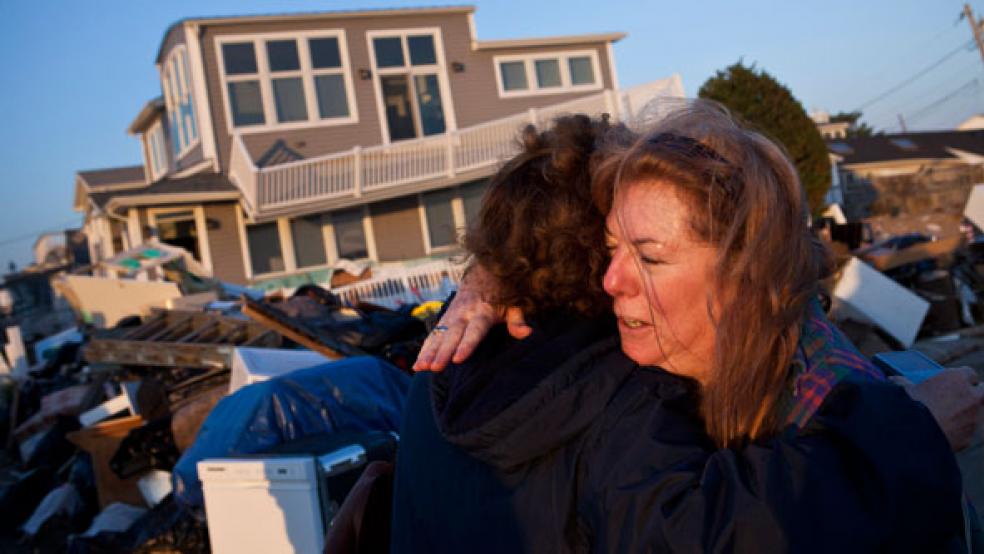Congressional Republicans find themselves in the eye of an ideological storm on disaster relief for Hurricane Sandy. This time it’s from a conservative group known to bankroll challengers in GOP primaries.

Just two days ago, New Jersey Gov. Chris Christie vilified House Speaker John Boehner for not voting as planned on a $60 billion measure to help the victims of the brutal storm that swept through the northeast at the end of October.
The rebuke by Christie – the keynote speaker at last year’s Republican convention – was a scathing attack on his supposed partisan allies. “The House majority failed the basic test of leadership and they did so with callous disregard to the people of my state,” he said.
A chastened Boehner scheduled a vote Friday to approve one part of that bill – $9.7 billion for flood insurance. The measure passed 354 to 67 despite GOP lawmakers getting pressured by the Club for Growth to reject the legislation. All of the nays came from Republicans, evidence of a core group that’s unwilling to concede on its deficit reduction principles.
RELATED: Republicans Start New Congress Bruised and Divided
Andy Roth, the organization’s vice president for government affairs, sent congressional offices a note this morning urging them to vote against the measure. “Congress should not allow the federal government to be involved in the flood insurance industry in the first place, let alone expand the national flood insurance program’s authority,” Roth wrote.
Those words carry weight because the bill, which expands the insurance program’s borrowing authority, will be included in the Club for Growth’s scorecard to assess lawmakers. Based on that scorecard, the group assesses who best adheres to its principles of smaller government and lower taxes. When a GOP lawmaker has a low rating, the club uses its network of donors to fund an opponent in the upcoming primary election.
The club tends to endorse in 15 to 20 races each cycle. “We’re really trying to build a majority of the majority – we’re not there yet,” Barney Keller, the organization’s communications director, recently told The Fiscal Times. “There’s a ripple effect to everything we do … Two years is a lifetime in politics.”
And Republican lawmakers – just two months after the presidential election – are already eyeing 2014.
The club most recently came out in opposition to Boehner’s “Plan B” to avert the fiscal cliff. It opposed the bill to raise taxes on incomes above $ 1 million, sabotaging support within the GOP caucus and humiliating the speaker who was forced to pull his measure from the floor.
Other conservative organizations such as the Heritage Foundation – a think tank that will likely have a more active role in campaigns, with former South Carolina Sen. Jim DeMint as its new head – also criticized the disaster relief as a “spending spree” that adds to the deficit.
The outsized influence of these conservative groups worries congressional experts like Norman Ornstein of the American Enterprise Institute. He sees them as imperiling the Republican party and the basic mechanisms of compromise needed for governance.
“To some extent,” he told The Fiscal Times, “what Boehner has to do is save his radicals from themselves.”
Meanwhile, victims of Superstorm Sandy, including many Republican voters, are hoping that their more than 2-month wait for Washington aid will soon be over.




